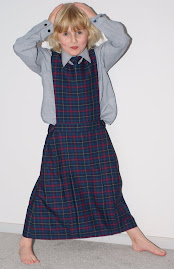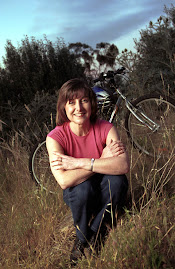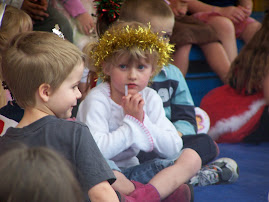I had the opportunity to book tickets for Disney on Ice in a pre-release offer. So I thought, Why not, as you do, and I went ahead and booked VIP tickets for me and Stephanie and her Dad. The performance is on Thursday 25th June and we have tickets at centre front stage in the 4th row. I'm really excited about going, I think it will be a fantastic night, and it's things like this that create great memories of our childhoods. I think Stephanie will be thrilled.
I have a bit of a 'thing' about fairytales, you know, all that Prince and Princess stuff. Which is ok, there's nothing wrong with a bit of fantasy in our lives, in fact, I think it's a good thing, but do wonder sometimes how some fairytale stories have changed and in particular, the story-lines and characters portrayed by Disney, which seem to have so much emphasis on girls achieving happiness by marrying their prince.
So I was quite pleased to come across some literature on this very subject while looking for some readings on a topic for Uni. It was refreshing to read Tess Cosslet in her account Fairytales: revising the tradition, which looked at Cinderella and Snow White in more depth.
She writes: "the stories assume that beauty is the highest value for women, and the possession (or not) of this quality sets women against each other as rivals for male approval. It is also assumed that greater beauty means greater virtue and that beauty is constructed in terms of 'whiteness'. Beauty is what gains the love of the handsome, rich Prince, which leads to marriage, which leads to wealth. Hence, wealth is the highest goal to be aimed at and marriage is the end-point in a woman's life. But to attain their goals the heroines are not active, but passive. Cinderella has to wait for the Prince to find her and her wish to go to the ball is fulfilled by magic, not by her own efforts. Snow White in her glass coffin is an extreme example of woman's passiveness and in both cases externalities are what rescue the heroines, who just happens to be the active male. The only assertive, active females in these storylines are wicked and thus female activity, resourcefulness, energy and anger are equated with evil or villianness, while female passivity is equated with goodness."
"Furthermore, the passive females are associated with domestic roles, Snow White with the dwarves, and Cinderella with servanthood, although she doesn't want to be there, she passively accepts her role. The end result, which can cover in some form or another ALL of Disney's fairytales is that women function as passive objects and rivals for male attention, marriage is their only goal and that a good woman stays in the domestic sphere and that any other kind of female behaviour is demonic, abnormal and monstrous."
Cosslet goes on further to look at fairytale history, and tells us they were once the popular art of the poor, passed on by word of mouth for entertainment and it was not until they were written down that a number of changes were made. The point is made that they were tales of people, expressing their hopes and fears, particularly of how they may escape hunger, exploitation and injustice and get their hands on the power, money and land of the rich. In such, fairytales then reflected the social ideology of the times and it's interesting to make the connection that since Walt Disney got his hands on these particular fairytales their scope has narrowed. The theory is that they have been given the voice of the dominant ideology. Which is an interesting point. Given that, in the 21st century we supposedly live in 'enlightened' times which give a much wider scope for women (and men)to live their lives, when do you think we shall see some rather radical changes to Disney fairytale storylines?
So, you might gather I'm not a huge fan of Disney. I much prefer other productions, such as Shrek, which gave a more balanced view of the rescued heroine, and one where beauty wasn't of such ultimate importance.
Will any of my views or awareness of the narrow scope of Disney characters and stories ruin my night at Disney on Ice? Hell, no! But will I be aware of the underlying social construct on display. Hell, yes! And because of my awareness I have the ability to give my daughter a wider scope.
Such as: Cinderella: You're not stuck doing something that you really, really hate and don't wait for the Prince or Fairy Godmother to change your life for you, you've gotta do it yourself. Snow White: You don't have to cook and clean for 7 little guys if you don't want to, if you want to go to work, then you can go too. And finally, Ariel: You don't have to give up your identity to get the man you love, if he loves you back he'll accept you for who you are.....and finally, a) you can be still be happy even if you don't get married, b) there is much more to men than the image of rescuer, so much more.
It's going to be a great night!
QotD: “Things went wrong the moment Blue decided to treat her fellow human
beings as depersonalized objects, and to let them treat her like an object
in turn”
-
Kathleen Stock (who I also quoted in my ‘The Dystopia of OnlyFans’ post)
has also written about the Bonnie Blue documentary; I would recommend
reading Stoc...
5 months ago




1 comment:
Hey LC! You're going to love the professional talent on show! We have seen many D.O.I productions, and they are magnificent, brilliant brilliant skaters, terrific costumes, music, lighting & choreography!
In my Early Childhood Studies, fairytales, including some of the very old European ones, have been deemed valuable in teaching children the lessons of good prevailing over evil; kindness, truth & loyalty being a virtues; hardwork, adversity & sacrifice making success far more appreciated than being born into it...
Try to put the Disney thing aside & enjoy the show, I don't think Walt intended his stories to be a bad thing. Your little sweetie will love that both Mum & Dad can sit in the same room, and watch something for her. Have a beautiful Mother's Day too. xx
xx
Post a Comment